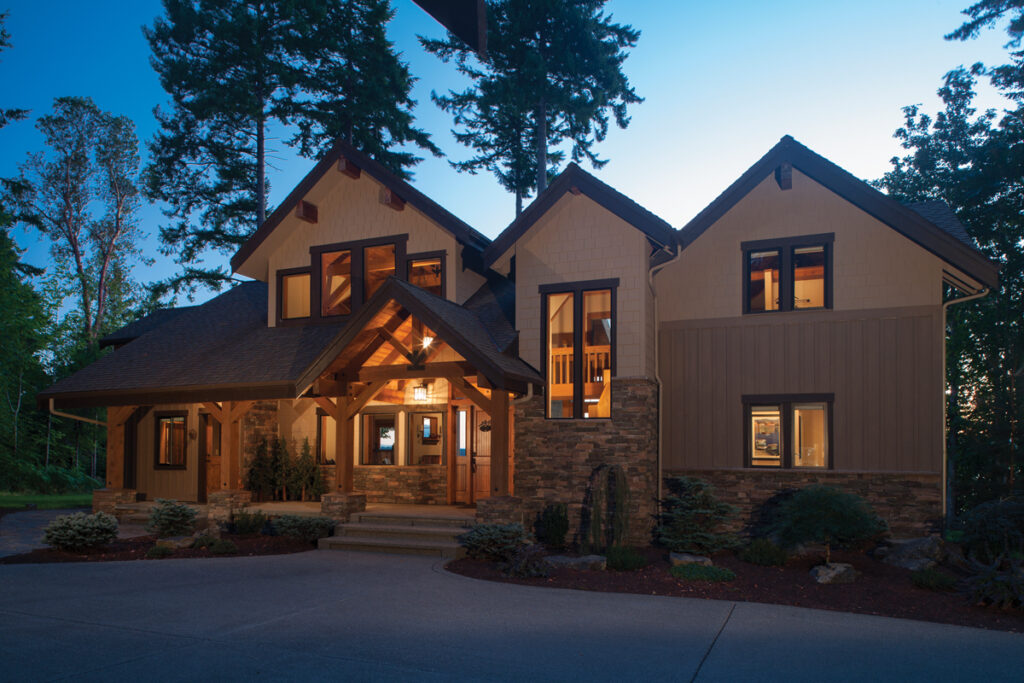When you’re in the market for new windows, deciding between single-, double-, and triple-pane windows is one of the many choices you’ll need to make. Double- and triple-pane windows both help improve energy efficiency, block ultraviolet rays, dampen outside noise, and offer enhanced protection from the elements compared to single-pane windows. But what is the difference between double- and triple-pane windows?
Should You Choose Double- or Triple-Pane Windows?
Double-Pane Windows
Double-pane windows, also known as dual-pane or double-glazed windows, consist of two layers of glass with a space between them. This space is typically filled with an insulating gas, such as argon or krypton, which helps to reduce heat transfer and enhances the window’s insulating properties. The primary purpose of double-pane windows is to improve energy efficiency by minimizing the heat that escapes from your home in the winter and enters in the summer. For many homeowners, double-pane windows are a practical and affordable option that meets their needs for both comfort and efficiency.
In addition to their energy-saving benefits, double-pane windows provide a sound barrier, reducing the amount of noise that can penetrate your home, making them a popular choice for homeowners living in noisy environments, such as near busy roads or urban areas.
Triple-Pane Windows
Triple-pane or triple-glazed windows have three layers of glass with two insulating spaces between them. Like double-pane windows, these spaces are usually filled with an insulating gas, which enhances the window’s thermal performance.
The extra layer of glass in triple-pane windows provides even better insulation, making them more energy-efficient than double-pane windows. This increased efficiency is especially beneficial in extreme climates, where the additional insulation can help maintain a consistent indoor temperature and reduce heating and cooling costs.
Similarities
Before looking at the difference between double- and triple-pane windows, let’s first note the similarities.
Improved Energy Efficiency
Both double- and triple-pane windows significantly improve energy efficiency compared to single-pane windows. Double-pane windows provide almost twice the insulating power of a single-pane window. In contrast, triple-pane windows provide even better insulation than double-pane windows, making them more energy-efficient overall.
Available Materials
Double- and triple-pane windows are available in various materials, including wood, fiberglass, aluminum, and vinyl.
Between-the-Glass Options
Both double- and triple-pane windows allow for between-the-glass blinds, shades, or grilles. Safely positioned between the glass panes, these window treatments are shielded from dust, damage, and curious hands, making them a convenient and stylish way to adjust light and privacy levels.
Size
You can find double- and triple-pane windows in a wide range of standard and custom size options.
Differences
What is the difference between double- and triple-pane windows? While both double-pane and triple-pane windows offer many benefits similar to those of single-pane windows, there are still several key differences between the two.
Energy Efficiency
Triple-pane windows provide better insulation and reduce thermal transfer than double-pane windows, making them more energy-efficient. For homeowners who live in regions that frequently experience extreme weather, triple-pane windows can significantly reduce heating and cooling costs.
Noise Reduction
Thanks to the additional layer of glass and insulating spaces between panes, triple-pane windows offer superior noise reduction compared to double-pane windows. Homeowners in noisy, urban areas looking for ways to dampen outdoor noises will find triple-pane windows more effective.
Where to Use
Double-pane windows suit moderate climates, quiet environments, and south- and west-facing rooms. Triple-pane windows are well-suited for extreme climates, noisy areas, and north- and east-facing rooms.
Cost
Triple-pane windows are typically more expensive than double-pane windows due to the extra materials and a more complex manufacturing process. However, long-term energy savings and increased comfort may justify the higher upfront cost for some homeowners.
_____
Selecting the right window can be tricky. With energy efficiency, style, performance, and cost to consider, there’s a lot to keep in mind. Working with a reliable window expert can help. At American Window Company, we’re ready to assist you in locating the right product for your home and budget. To get started, contact us today.




